7 Reasons Your Car Battery Keeps Dying Overnight
There’s nothing more frustrating than heading out in the morning only to realize that you have a dead battery. While it’s not something you think about when everything’s running smoothly, a few mistakes or faulty components can lead to a battery that dies quickly.
Below we’ve highlighted the most common reasons your battery might keep dying, and whether a completely dead battery can even be recharged.

Things That Can Drain a Car Battery
If your vehicle has a dead battery, there could be a variety of causes. So, before you head out and buy a brand-new battery check out the following problems that might be draining your battery.
While you might need a new battery, there also might be another explanation.
Related: Bad Battery vs Bad Alternator
#1 – Lights Left On
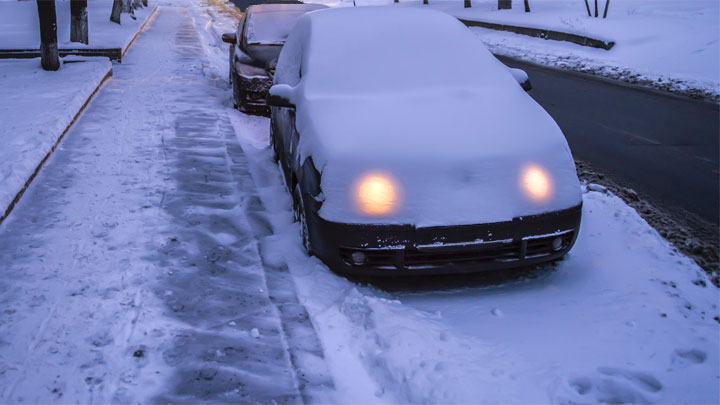
It’s an age-old problem. You accidentally leave your lights on overnight and come back out in the morning to a dead battery. While headlights are a common culprit, dome lights or other similar lights can certainly lead to the same problem.
While modern vehicles often have automatic headlights that help alleviate this problem, it has led to more complacency when driving an older vehicle without this feature.
#2 – Another Parasitic Draw
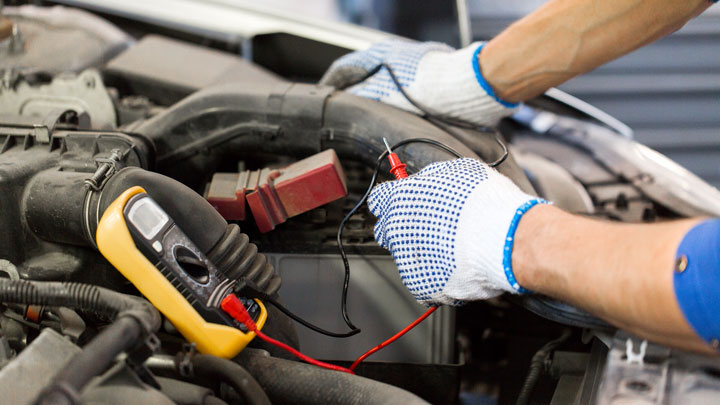
While a light left on is an example of a parasitic drain, the full definition encompasses everything that’s drawing electricity when the car is off. All modern vehicles have some parasitic draw. That’s why if you’re heading away on vacation and won’t be driving for a while, it’s a good idea to disconnect your car battery.
But when those draws take too much power, it can create a problem. Crossed electrical lines, malfunctioning components, and a radio that won’t turn off are all examples of potential parasitic draws. It’s a common reason for a battery that seems to always die overnight.
#3 – Corroded or Loose Battery Connections
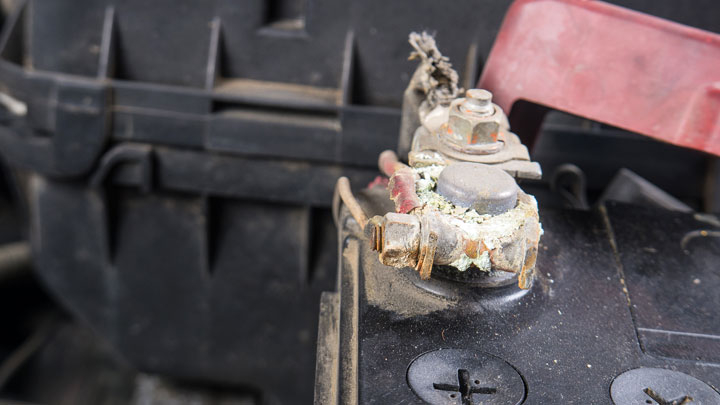
Corroded wires create more resistance, making it harder for electricity to get to where it needs to go. This means your battery needs to push more power to get the desired results, which can kill your battery.
The same thing goes for loose connections. Sturdy connections offer little resistance, loose connections cause the overall resistance to skyrocket.
Not only does this make it harder to start your vehicle, but it can also drain the battery for when you do tighten everything back up or clean the terminals.
#4 – Problems with the Charging System
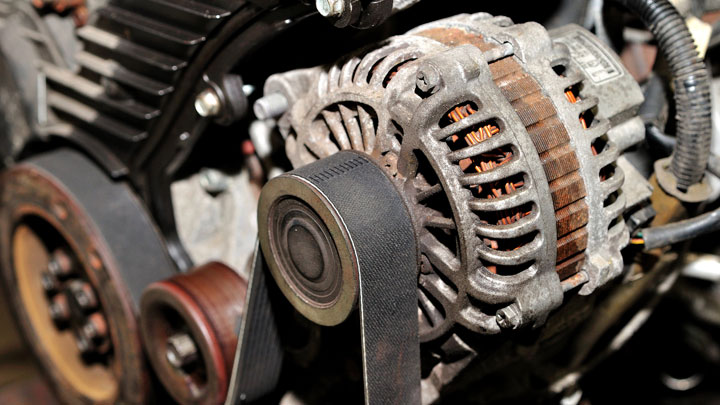
While the battery’s job is to hold a charge and help start your vehicle, it’s the alternator’s job to charge the battery. But if there’s a problem with the alternator or the wiring, your battery won’t get the charge it needs to stay alive.
You’ll notice that your battery will start your vehicle a few times, but then you’ll need a jump or a charge. There are tons of people that have replaced a perfectly good battery when their alternator was the problem.
To check the charging system, you need to check for voltage output at the alternator when the vehicle is running. You can always take your vehicle to a part store like Autozone to have them run a complete diagnostic test on your charging system too.
#5 – Short Drives/No Time to Charge
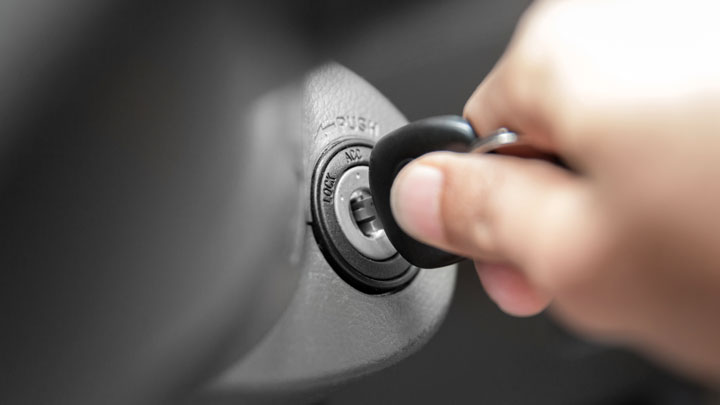
Every time you start your car you drain the battery some. That charge doesn’t just magically come back. The alternator needs to work to recharge your battery, and that takes time.
If all you’re doing is a quick drive down the street and back every day, your battery isn’t getting the necessary time to charge between starts. Try leaving your vehicle running for 15 to 20 minutes to give your alternator some time to recharge the batteries.
#6 – Severe Temperature Changes
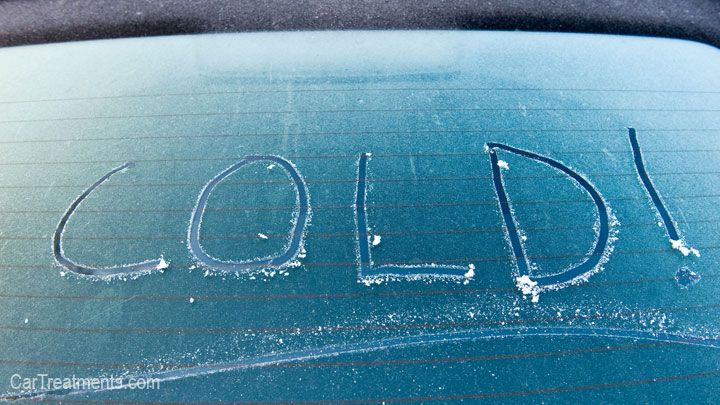
Whether it’s really hot or really cold, your battery doesn’t like extremes. While new batteries can tolerate these changes better, older batteries simply can’t handle it.
It’s perfectly normal for batteries to lose some of their effectiveness in extreme weather, and if the weather is extreme enough, you might not be able to get your vehicle started.
See Also: 3 Reasons Your Car is Hard to Start in Cold Weather
#7 – Old Battery
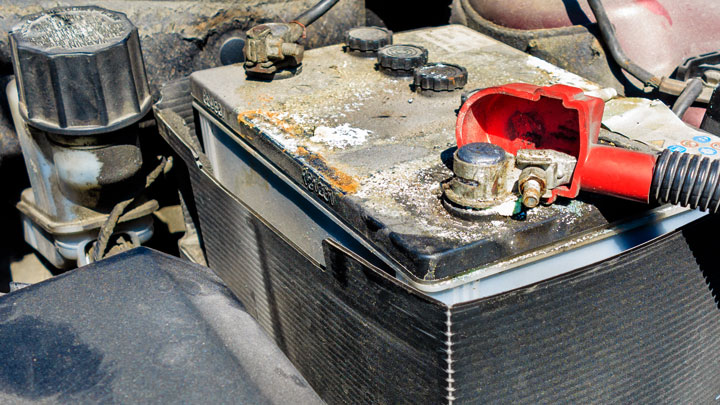
Every component in your car only lasts so long. While the overall lifespan of your battery depends on where you’re using it, but you need to replace even the best batteries in the best conditions about once every ten years (extremely rare a battery would last that long).
More typical results mean that you end up replacing your battery about once every three to five years. The good news is that newer technology allows batteries to last longer and weigh less to make installation easier.
Can a Completely Dead Battery Be Recharged?
While you can’t recharge a completely dead battery, chances are the battery you’re trying to recharge hasn’t reached that point. As long as a battery has at least a single volt, there’s a chance the right charger can bring it back to life.
But keep in mind that restoring a battery isn’t all about the volts. You also need cold-cranking amps, and even a battery with a full 12.6 volts might not be able to start a vehicle with the necessary cold-cranking amps.
Also, keep in mind that some batteries simply can’t hold a charge any longer. It doesn’t matter how dead a battery is in a situation like this, no amount of time on a charger will bring it back.
Finally, it’s always better to trickle charge than dump a bunch of current in at once when you have the time. It can take a few days to fully recharge a battery on its last leg, but it’s the best chance you have to get everything back to running smoothly.
- P0521 Code (Symptoms, Causes, How to Fix) - Mar 22, 2024
- How to PROPERLY Clean 5 Types of Steering Wheel Materials - Feb 19, 2024
- What Should You Do If Your Check Engine Light Comes On? - Nov 6, 2023
